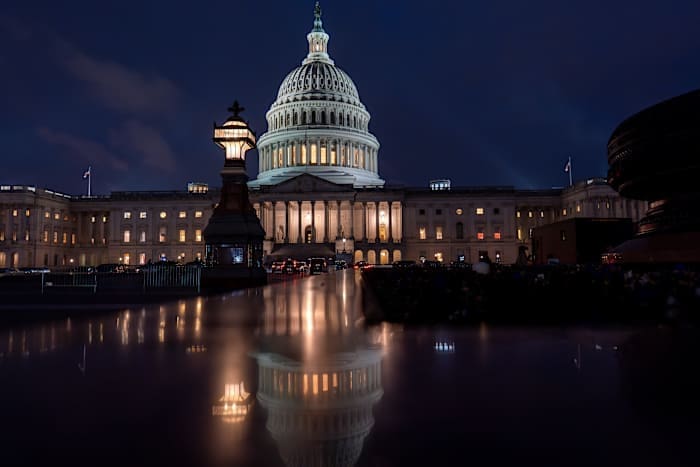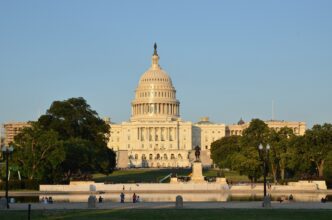In a decisive move amid political discord, President Joe Biden signed legislation preventing a federal government shutdown, following a series of intense negotiations in Washington. The temporary funding plan, which came through Congress just beyond the deadline, marks a compromise between parties, leaving some of President-elect Donald Trump’s demands unmet.
The newly enacted bill funds the government at existing levels until March 14, securing $100 billion for disaster relief and $10 billion for agricultural aid. President Biden emphasized the nature of compromise, noting, ‘This agreement represents a compromise, which means neither side got everything it wanted. It ensures the government can continue to operate at full capacity. That’s good news for the American people.’
House Speaker Mike Johnson, faced with the challenge of avoiding a shutdown, secured the approval of his revised plan with a 366-34 House vote, followed by an 85-11 Senate vote post-midnight. The White House subsequently called off shutdown preparations as Senate Majority Leader Chuck Schumer confirmed, ‘There will be no government shutdown.’
Despite facing demands from Trump to increase the government’s borrowing limit, Johnson, after consulting with Trump, described the outcome as ‘a good outcome for the country,’ with Trump reportedly pleased with the resolution. This marked Johnson’s third attempt, amidst criticism from some Republicans, particularly Andy Harris, who expressed concerns about deficit spending.
In the Republican party, concerns about leadership and spending persist as Johnson’s efforts highlight the dependency on Democratic support to pass funding packages due to internal divisions over fiscal issues. As the debt stands at about $36 trillion, the negotiation spotlight remains on future discussions over the debt ceiling, expected to be addressed in the forthcoming tax and border packages.
The decision to avoid raising the debt limit presently stems from strategic financial management by the Treasury Department, although experts anticipate these measures might delay a potential default until the summer of 2025. Trump’s stance was aimed at circumventing a debt increase during his upcoming term.
Looking forward, GOP leaders have indicated plans to revisit the debt ceiling debate aligned with fiscal reductions of $2.5 trillion over a decade. This approach mirrors prior proposals but excludes Trump’s earlier demands, which derailed previous negotiations. Despite setbacks, the newly agreed package excludes contentious measures, including lawmaker pay raises, that faced bipartisan support but now face a challenging path.
The passage of this funding bill represents a temporary solution amid ongoing political challenges. The reliance on cross-party collaboration underscores the complexities in managing national fiscal policies, leaving future negotiations on pivotal issues like the debt ceiling inevitable. As political dynamics evolve, the government’s ability to balance fiscal responsibility with operational necessities remains under scrutiny.
Source: News4jax








